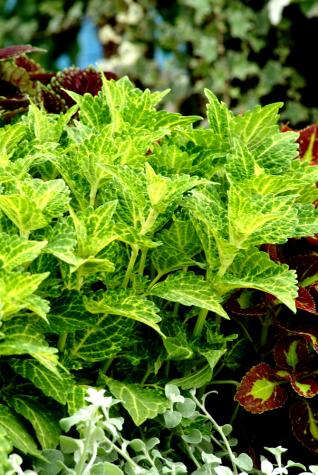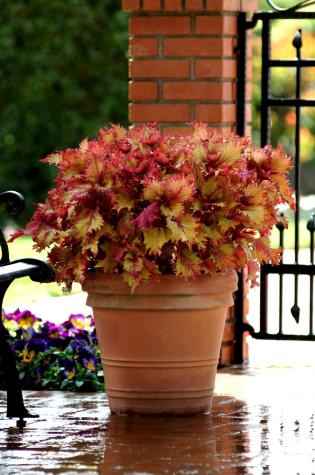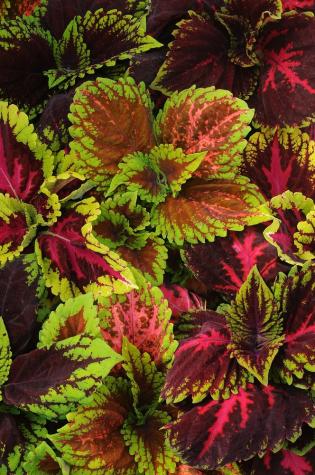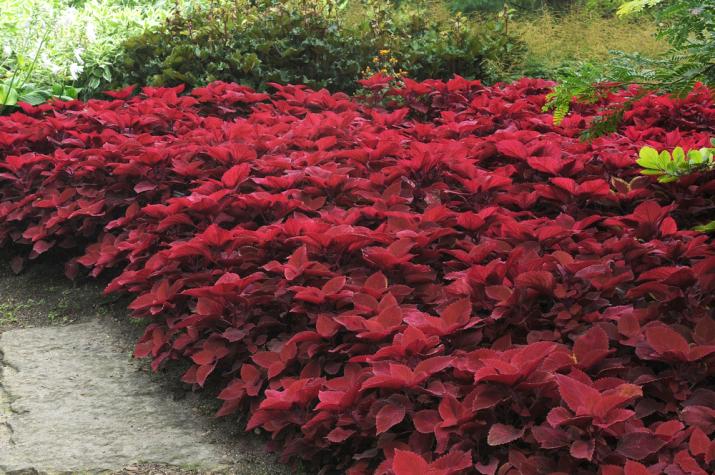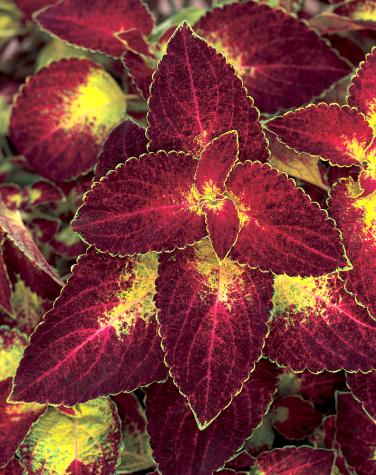COLUMBIA, Mo. – Coleus, which produce exquisite leaves that come in a wide variety of colors and patterns, can add sparkle to any landscape.
Coleus plants are easy to grow and durable in the garden.
“The growth habit is outstanding and they are very vigorous,” said David Trinklein, horticulture specialist for University of Missouri Extension. “Coleus have relatively few pests, which makes them a great plant for learning how to garden.”
When choosing coleus plants, it’s important to know whether the plant was seed or vegetatively propagated. For a time, growers and plant geneticists courted the idea of seed propagation of coleus, Trinklein said. The result was a number of compact coleus cultivars that did well in the shade but were not suitable for sunny areas.
So the old vegetatively propagated cultivars that tolerate sun were brought out of retirement.
“They started working on improving them genetically,” Trinklein said. “Now we have outstanding new vegetatively propagated coleus. They’re called ‘sunfast coleus.’”
Sunfast is true to its name.
“The newer cultivars can put up with full, blistering sun if you keep them watered,” Trinklein said. “The best leaf color probably is with full morning sun and afternoon shade, simply because the afternoon sun tends to bleach the colors because of the heat.”
Be certain you choose the right coleus for the sunny or shady parts of the yard. When buying coleus at a retail outlet, vegetatively propagated plants usually will found be in pots that are no smaller than 4 inches, he said. Seed-propagated coleus will be found in traditional bedding-plant packs, and should only be used for a shade border plant.
To give coleus their best look, pinch them back to prevent flowering. This will prompt the plant to put its energy into branching and foliage, giving you a beautiful, full plant, Trinklein said.
“This is a long-day plant which typically will bloom first of July, and most gardeners would pinch them off and let the foliage tell the story,” he said.
You can have your choice of sizes.
“We have coleus that might struggle, in a good way, to be 8 inches tall by the end of summer, all the way up to what is called the Kong series, which might achieve a height of 48 inches or more,” he said.
Coleus is a great supporting actor.
“They make excellent container plants, but because of the myriad of colors and leaf forms and shapes, they tend to blend well and give body to a bed or a border,” he said.
Why bother with coleus when we have plenty of nice ornamental species that will tolerate or demand sun?
“Well, if you see the sunfast coleus next to the shade-loving coleus, you’ll discover why. They’re just outstanding,” Trinklein said.
More information about coleus: http://ipm.missouri.edu/meg/2015/1/2015-Year-of-the-Coleus.
